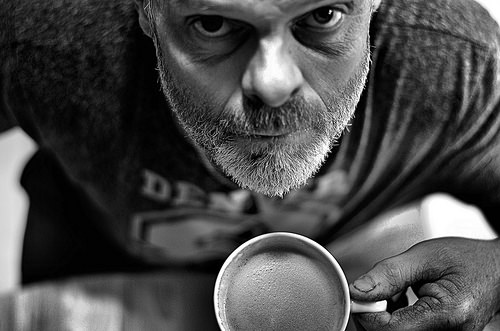Recently we participated in a Writers’ Workshop in Crete. We are lucky to have here an experienced Finnish author and playwright who has had plays performed world-wide. He led the programme, and people of at least four different linguistic groups participated. It proved great fun and kick-started some shy authors into producing impressive short stories.
For this programme, the current writer dug into his store of psychological information amassed over the years and used extensively in team and personal development in organisations. This was well received by the writers in Chania and is shared here as way of developing the psychology of characters.
Here is one:
Sub-personalities
Psychosynthesis, developed by Assagioli, an Italian Psychotherapist and contemporary of Freud and Jung, suggests that we all have sub-personalities. There is an exercise that you do early in a Psychosynthesis training, where you respond to the statement “I want . . . “ over and over. It is simple to do. You must not censor. A list results with items like:
A big house
A good curry
A good curry
A satisfying job
Peace and quiet
To see Antarctica
. . . and so on and so forth.
The list usually will have more than 20 items. Then you choose 5. In the exercise you sit with others around you, and they then all say one of the wants, as you listen. It is a weird experience, as you hear things you do indeed want, but which are often mutually incompatible or at least don’t sit easily together (“I want to travels as free as a bird” vs “I want a promotion at work”).

A cottage in the forest (full of people)
What Assagioli confirmed was these psychological patterns are within us, and have thoughts, feelings and motives of their own. In another exercise, using visualisation, you come across a cottage in a forest, and invite three figures to emerge. Each one comes and speaks with you (in your mind’s eye). For most, it is a very powerful experience, as the three figures will often vary hugely, have very different wants, and will operate within us, particularly if we are not very self aware, causing behaviour that may be surprising or at odds with what we think we are.
So how does this relate to developing a character in a novel?
Your characters will also have sub-personalities. For this reason they will not always behave consistently. The context within the story may determine which sub-personality will come to the fore.
Think of Tyrion in Game of Thrones.

Tyrion in Game of Thrones
He loves word play. He is a keen historian. He likes a good f*ck. He likes getting drunk. He is adept as a diplomat. He is a good military tactician.
In each case he is drawing on a psychological sub-personality with its own motives, strengths and weaknesses, and even thought processes. His drinking certainly gets in the way of his diplomacy, as does his need, on occasions, to be too clever by half.
In each case he is drawing on a psychological sub-personality with its own motives, strengths and weaknesses, and even thought processes. His drinking certainly gets in the way of his diplomacy, as does his need, on occasions, to be too clever by half.
The reason Tyrion, and indeed many of the GOT characters ring so true, is that they have these layers of complexity.
How do you find the sub-personalities of your characters?
This is best done without a calculator. In other words this is a creative rather than a derivative process. As a character comes to mind and begins to be fleshed out for your story, you can simply allow them free rein in your mind’s eye. See them in contrasting situations and wonder what they might do, and simply watch. Your own inner psychologist will soon come up with suggestions.
In my latest novel, Time Knot, I have a character called Lucian. He features as a handsome seventeen year old the school the protagonist Rhory attends. But he also appears in other guises at other time periods, notably as a Danish Catholic Captain, hunting Rhory through the snowy forests of Sweden in medieval times. Lucien has a very smooth and charming sub-personality. He is seductive, both with Rhory and his pretty sister Juliette. But he is also deceptive, encouraging Rhory to use a ouji board, and thereby putting himself in great (psychic) danger. He is also both cruel and relentless, as shown in his military embodiment, where he is prepared to murder to get his quarry.
The trick in writing is to have the sub-personality emerge at just the right moment. The emotional arc of the character, may be the gradual integration of various opposing sub-personalities, or the emergence of one that has been much suppressed, wrecking havoc along the way.
photo credit: A very good morning to you all ! via photopin (license)


Leave a Reply